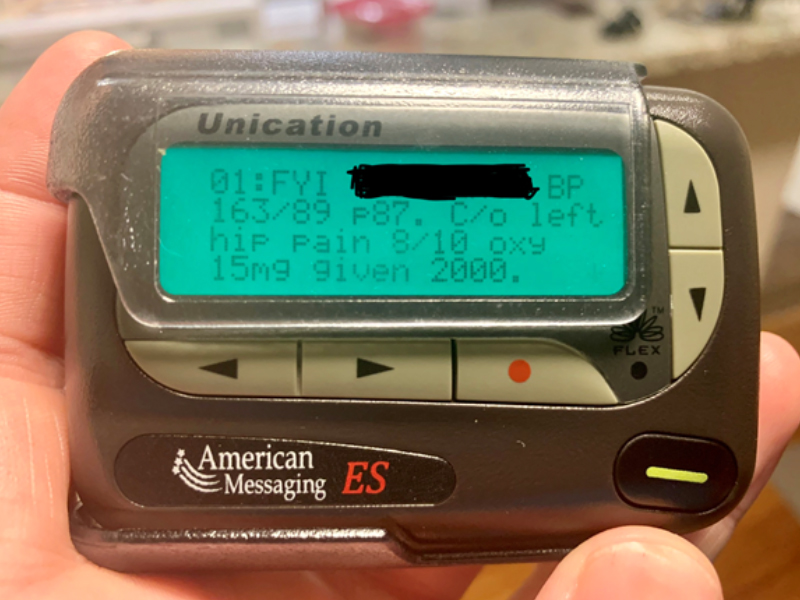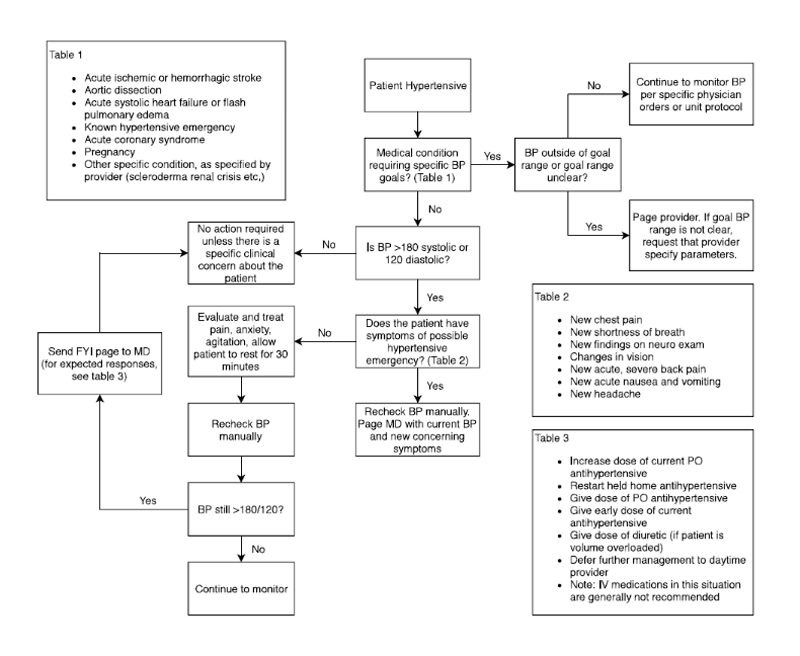 Briefly, unless the patient has a specific condition that requires blood pressure management (acute stroke, aortic dissection, etc.) or a change in their clinical status, hypertension in the hospital should not be treated quickly. This runs counter to the old dogma that significantly elevated BP (systolic over 180), needs to be urgently lowered. I would even argue that “hypertensive urgency” is not a real diagnosis (although hypertensive emergencies certainly exist). The difference is that a hypertensive emergency involves end organ damage.
Briefly, unless the patient has a specific condition that requires blood pressure management (acute stroke, aortic dissection, etc.) or a change in their clinical status, hypertension in the hospital should not be treated quickly. This runs counter to the old dogma that significantly elevated BP (systolic over 180), needs to be urgently lowered. I would even argue that “hypertensive urgency” is not a real diagnosis (although hypertensive emergencies certainly exist). The difference is that a hypertensive emergency involves end organ damage.
Blood pressure may be elevated in the hospital for many reasons (pain, anxiety, or the stress of getting woken up for a vital sign check). If the patient is asymptomatic, overnight we generally do not treat the number. Of course, new severe hypertension may have a treatable underlying cause, so seeing and evaluating the patient is a good idea. Certain new symptoms should be evaluated for a possible hypertensive emergency. Below is an algorithm I made for the nurses that represents the current standard of care.
Algorithm for Blood Pressure Management
Blood Pressure Studies
For the sake of brevity, I try not to cite the literature on this website. However, I want to share two of my all-time favorite studies that help us answer the question, “How high can a person’s blood pressure be before their organs explode?” These studies involved invasive arterial BP monitoring of elite athletes during heavy weightlifting.
These researchers recorded blood pressures as high as 345/245 during squats. As a side note, does it really take 10 authors + et al. to place an arterial line in weightlifters and ask them to lift weights? Give me a break.
These researchers recorded blood pressures of greater than 480/350 during leg presses.
Do I think our elderly patients with vascular disease can tolerate a systolic blood pressure as high as 480? No. The point I am making is that the BP number must be taken in clinical context. A rapid lowering of asymptomatic hypertension likely has no benefit but has the potential to cause substantial harm (falls, stroke, symptomatic hypotension, unnecessary overnight monitoring, cost, and extra work for the nurses).
I also want to make it clear that I am not discounting the value of long-term control of hypertension in the outpatient world, which is extremely important and prevents substantial morbidity and mortality. With blood pressure control, it is generally the years and not the days that matter.
Image credit: Eric Tanenbaum.

